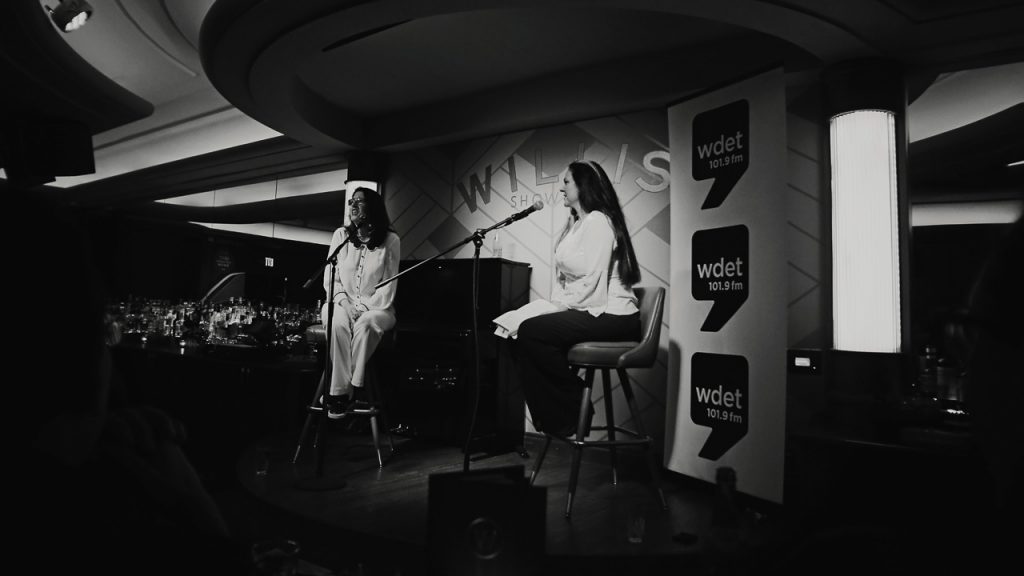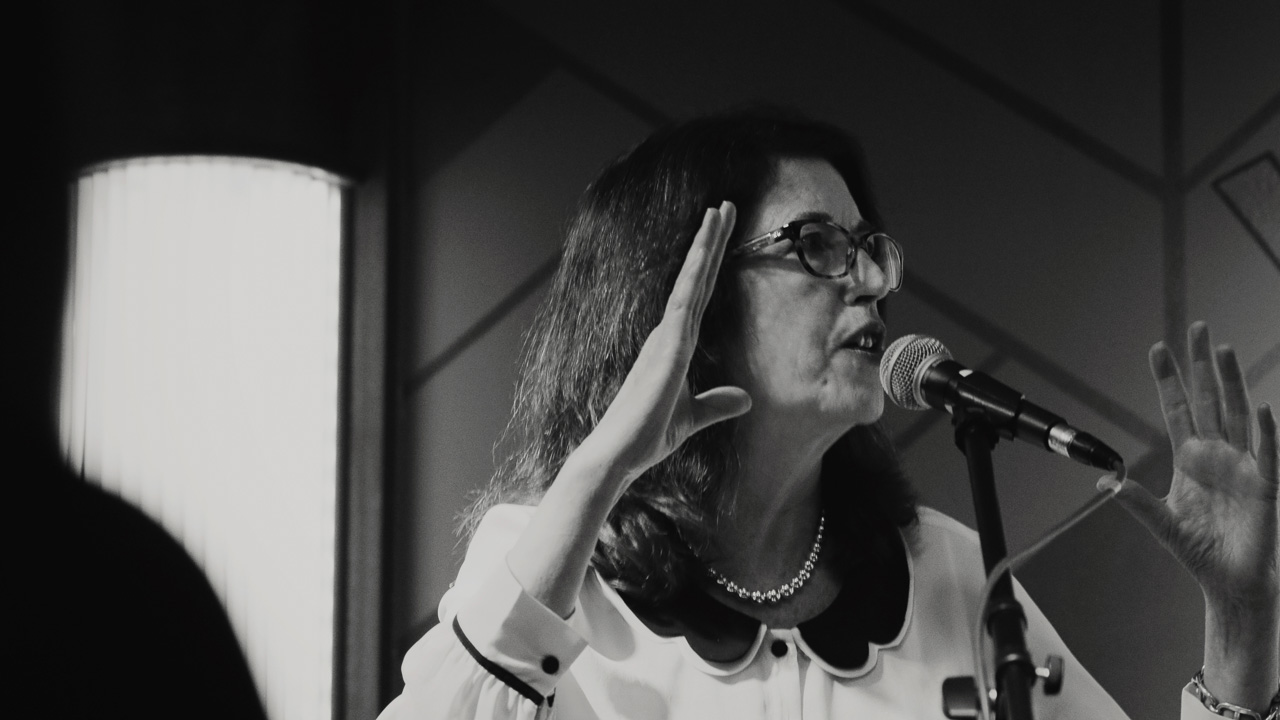True Tales of Prince From Susan Rogers, His 1980’s Audio Engineer
Ann Delisi January 29, 2020Audio Engineer Susan Rogers worked with Prince for almost five years during his prolific 1980’s rise. She speaks with WDET’s Ann Delisi for the “Essential Conversations” podcast.

Susan Rogers knows Prince. Better than your average fan, at least.
The audio engineer and Berklee College of Music Professor spent pretty much every waking moment with Prince for almost five years. She was an integral part of his recording process, created his famous music vault and was a witness to his meteoric rise when the film “Purple Rain,” film and soundtrack were introduced to the world.
“If I had written on a piece of paper what would be your greatest dream, it would have been to work for Prince. And it happened.” – Susan Rogers, audio engineer

Rogers is not a musician, but she knew she wanted to be where records were made. For three decades she recorded many musicians, including Prince, and now educates the next generation of musicians at the Berklee College of Music in Boston.
Her career started in 1978 in Hollywood, CA as an audio technician repairing consoles and tape machines in the greater Los Angeles area. That work lead to her job as the studio maintenance tech for the studio owned by Crosby, Stills & Nash which was breaking down all the time.
That’s where she was working when Prince found her in 1983.
“If I had written on a piece of paper what would be your greatest dream, it would have been to work for Prince, and it happened.” she says.
Rogers’ spoke to WDET’s Ann Delisi at Willis Show Bar in Detroit for a two-part episode of the “Essential Conversations” podcast.
In Ep. 13, Rogers talks about meeting Prince and their collaboration together, the song she loved that he made her erase and the rehearsals for the Purple Rain Tour.
In. Ep. 14, they discuss the two musicians whose tour support he anonymously paid to keep their careers going, how he created his own competition and when she realized it was time to leave.
Subscribe to Ann Delisi’s Essential Conversations podcast on iTunes, Stitcher, Spotify or where ever podcasts are found.
Show Notes
On hearing Prince composing “Purple Rain,” (Ep. 13, 13:27):
“I could hear him up above me, for hours, playing through ‘Purple Rain’,’ ‘The Beautiful Ones,’ ‘Computer Blue,’ just waiting for his studio to be ready. But, I hadn’t met him yet, I’m just hearing this figure up there playing and singing.”
On meeting Prince for the first time, (Ep. 13, 15:23):
“I stopped him and going up the stairs and I said, ‘Prince…’ He stopped and turned around and I just stuck out my hand and I said ‘I’m Susan Rogers.’ He got that look on his face that I would come to see many times where he’s about to laugh, but he doesn’t want to ruin the dignity of the moment, he looked bemused and said ‘I’m Prince’, and he put out his hand and we shook hands and kind of did a little bow. In hindsight, I’m really glad we did that.”
On the misconception that Prince was a perfectionist, (Ep. 14, 15:35):
“People thought he was a perfectionist: No. No, he was just really, really, really good. But a perfectionist is someone who won’t stop until every ‘i’ is dotted and every ’t’ is crossed. We wouldn’t have turned out as many records if we had been aiming for perfection. We were just moving constantly, so not perfectionism.”
On Prince creating his own competition, (Ep. 14, 18:15):
“As soon as he had a little success, he created his own competition. He created other bands who were just like him. He created The Time as an alter-ego, he created Vanity 6 as an alter-ego, and he did a record with Jill Jones and Sheila E and a record with The Family. He created other artists because he was so prolific. He had more than one musical identity, but also because it would make him stronger if there were others like him from this region. And it worked. When you think about in the 80’s, think about Bruce Springsteen, Madonna, Michael Jackson and Prince, how many of them were not only making their own records, but were making two or three records for other people?”
Ann Delisi’s “Essential Conversations” is sponsored by:

Support the news you love.
Here at WDET, we strive to make our journalism accessible to everyone. As a non-profit public media institution, we maintain our journalistic integrity through independent support from readers like you. Because you value WDET as your source of news, music, and conversation, please make a gift of support today. Even $5 helps!
